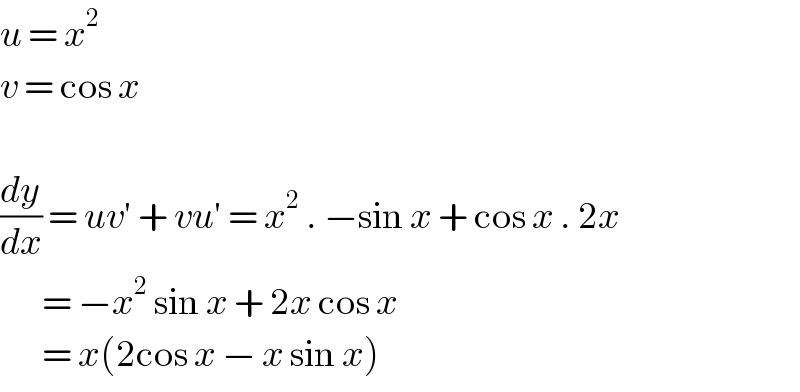
Question and Answers Forum
Question Number 37662 by Rio Mike last updated on 16/Jun/18

Answered by Joel579 last updated on 16/Jun/18

| ||
Question and Answers Forum | ||
Question Number 37662 by Rio Mike last updated on 16/Jun/18 | ||
 | ||
Answered by Joel579 last updated on 16/Jun/18 | ||
 | ||
| ||